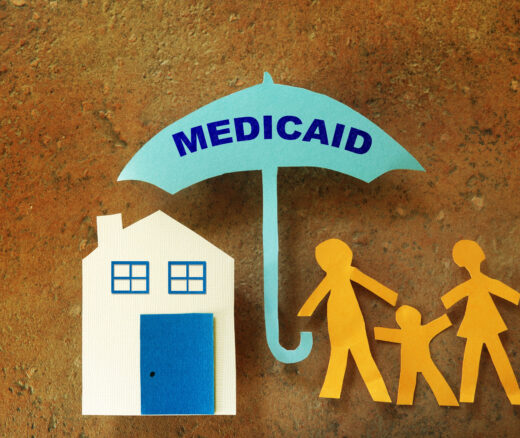
Experts: Medicaid Cuts Could Prove Fatal for Thousands
Historic Coverage Loss Could Cause Over 51,000 People to Lose Their Lives Each Year, New Analysis Finds
Blog Post
Medicaid pays for health care during pregnancy and delivery for almost half of births in the United States. Until recently, for those whose income was too high to qualify for Medicaid through other pathways, this pregnancy benefit ended abruptly 60 days after delivery. However, as of April 2022 and thanks to a provision in the American Rescue Plan, states now have the flexibility to extend postpartum Medicaid for up to a year after birth, and many are doing so.
Our (Dr. Gregory and colleagues) recent research focused on the effects of follow-up care in the year after birth. As we reported in the Journal of Women’s Health, we found preventive visits after a complicated pregnancy were associated with a lower risk of complications in subsequent pregnancies. In our view, this finding provides new and vital evidence on the importance of continuous access to care after pregnancies. By extension, they also highlight the importance of improved access to care through levers like health insurance coverage.
Using Medicaid claims from 2007 to 2012, the research team studied women (as defined by the Medicaid data) who were continuously enrolled in Medicaid for a year after birth and had a pregnancy complicated by diabetes, hypertension, or preterm birth, and who then also had a subsequent pregnancy. We were interested in whether and how often women received follow-up care, the rate of complications in future pregnancies, and whether follow-up care was linked to fewer complications. The analysis was adjusted for race and ethnicity but did not examine whether findings differed across different racial groups.
The findings revealed that:
While the findings cannot speak directly to the effects of losing or maintaining coverage, they do have implications for the current postpartum Medicaid expansion and its potential impact. In addition, coverage alone is not likely to be sufficient to ensure that those who have given birth are utilizing recommending preventive care.
Successful strategies for improving utilization of care will likely need to focus on reducing burdens for individuals who have recently given birth. Given our vantage point in a pediatric health care system, we are particularly interested in strategies that leverage pediatric visits to provide integrated care to both caregivers and infants. Our (Dr. Gregory and colleagues) prior research has shown that individuals who have given birth are more likely to attend their child’s pediatric visits than visit their own adult care provider, thus creating opportunities for preventive care for postpartum individuals in pediatric settings. Despite innovation in intergenerational care delivery in the pediatric setting, payment barriers prevent further developing and scaling these models of care. Other promising strategies include expanded telehealth and improved integration with public health programs that serve families in pregnancy and the postpartum period, such as home visiting and the Special Supplemental Nutrition Program for Women, Infants, and Children (WIC).
Pregnancy complications increase the risk for future adverse pregnancy outcomes and are a risk factor for long-term poor cardiovascular health outcomes. While our research looked at relatively short-term benefits in subsequent pregnancies from having preventive follow-up care, the findings suggest improving access to care may be an important policy lever to improve health and health equity in the long-term.
The study, Interconception Preventive Care and Recurrence of Pregnancy Complications for Medicaid-Insured Women, was published on February 28, 2022, in the Journal of Women’s Health. Authors include Emily F. Gregory, Molly Passarella, Lisa D. Levine, and Scott A. Lorch.



Historic Coverage Loss Could Cause Over 51,000 People to Lose Their Lives Each Year, New Analysis Finds
Research Brief: New Incentive Structures and Metrics May Improve Program Performance

Research Memo: Response to Request for Technical Assistance

Immigration Crackdown and Medicaid Cuts Put Millions at Risk

Will This Time be Different? Past Health Bills Hold Clues

Research Memo: Supplement to Response to Request for Technical Assistance

Many With High Drug Costs Have Supplemental Coverage and Won’t Reach the $2,000 Out-of-Pocket Cap, a New LDI Study Finds

New Research Shows That Continuous Eligibility and Streamlined CHIP Structures Helped Protect Kids During the “Unwinding”